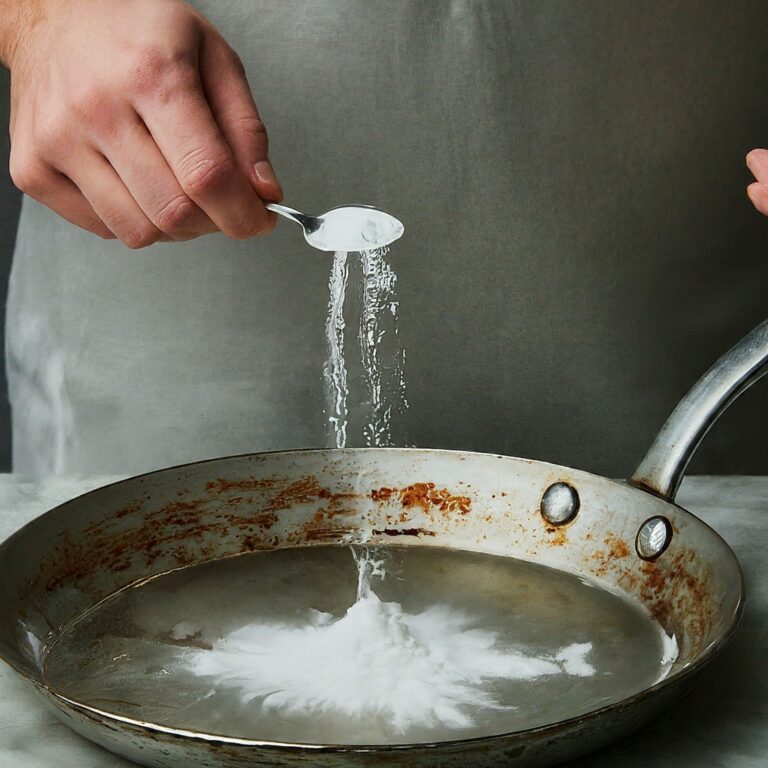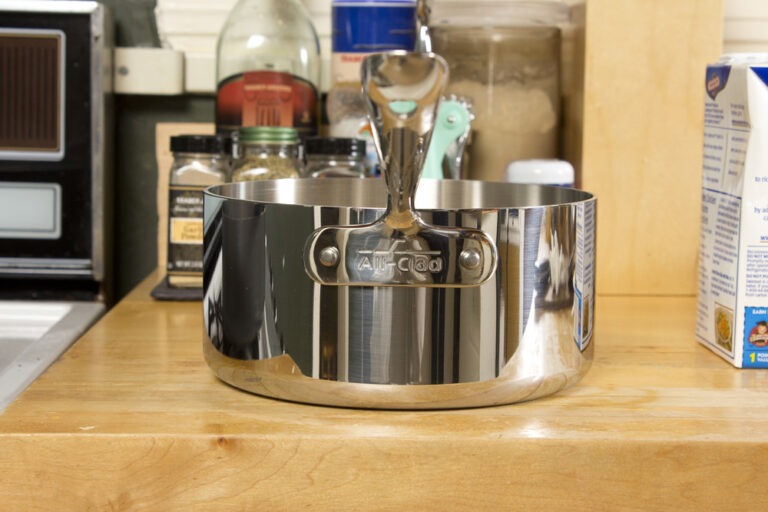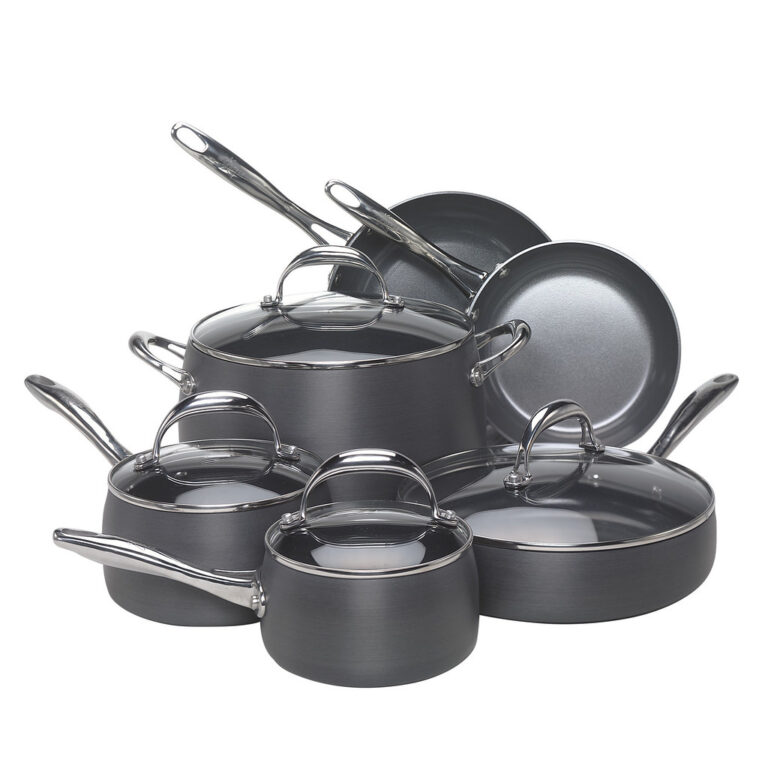I’ve always wondered if stainless steel is a good choice for cooking. So, I decided to dive into the topic and gather all the information I could find.
In this article, we’ll explore the advantages and disadvantages of using stainless steel cookware, along with tips on how to choose the right set for your kitchen.
Additionally, I’ll share some insights on properly using and maintaining stainless steel cookware to ensure its longevity.
Let’s get started!
Key Takeaways
- Stainless steel cookware is a durable and long-lasting investment for your kitchen.
- It has excellent heat distribution and retention properties, cooking food evenly without hot spots or cold areas.
- Stainless steel is the preferred choice for professional chefs and home cooks due to its durability and affordability.
- However, it requires more maintenance, can react with acidic foods, and may contain elements that can leach into food, posing health concerns.
Advantages of Stainless Steel Cookware
Stainless steel cookware is great because it’s durable, easy to clean, and doesn’t react with food.
One of the major advantages of stainless steel cookware is its durability and longevity. Unlike other materials that may chip or rust over time, stainless steel is resistant to wear and tear, making it a long-lasting investment for your kitchen.
Additionally, stainless steel has excellent heat distribution and retention properties. This means that your food will cook evenly and efficiently, without any hot spots or cold areas. The even heat distribution ensures that your dishes are cooked to perfection every time.
Furthermore, stainless steel retains heat well, keeping your food warm even after you take it off the stove.
Overall, the durability and heat distribution qualities of stainless steel cookware make it a top choice for professional chefs and home cooks alike.
Disadvantages of Stainless Steel Cookware
Using stainless steel cookware can have its drawbacks, such as being more prone to scratching and requiring more maintenance. But beyond these surface-level concerns, there are other cons of stainless steel cookware that are worth considering.
Firstly, stainless steel is not the best conductor of heat, which means it may take longer for your food to cook evenly.
Secondly, acidic foods can react with the metal, resulting in a metallic taste in your dishes.
Additionally, there can be health concerns with stainless steel cookware if it contains certain elements like nickel or chromium that may leach into your food during cooking.
Lastly, cleaning stainless steel can be a bit challenging as it requires careful scrubbing and avoiding abrasive cleaners that could damage the surface.
Overall, while stainless steel has its benefits, it’s important to weigh these cons before investing in this type of cookware.
How to Choose the Right Stainless Steel Cookware
When choosing the right cookware for me, it’s important to consider factors such as durability, heat conductivity, and compatibility with my cooking style. In the case of stainless steel cookware, I find that it ticks all these boxes.
One of the key advantages of stainless steel is its durability. It can withstand high temperatures and is resistant to scratches and dents. This means that I can use it for years without worrying about having to replace it frequently.
Additionally, stainless steel cookware comes in a wide price range, making it accessible to different budgets. Whether I’m a professional chef or a home cook on a budget, there are options available that suit my needs.
Overall, when considering durability and price range, stainless steel cookware is an excellent choice for me in the kitchen.
Tips for Properly Using Stainless Steel Cookware
If you want your stainless steel cookware to last longer, it’s important to properly care for it by avoiding harsh abrasives when cleaning. Instead, use a soft sponge or cloth with mild dish soap and warm water. Here are some tips I’ve found useful in maintaining my stainless steel cookware:
- Always preheat the pan before adding food to prevent sticking.
- Use lower heat settings as stainless steel conducts heat well.
- Avoid using metal utensils that can scratch the surface.
- For stubborn stains, soak the cookware in a mixture of vinegar and water before scrubbing gently.
When it comes to cooking with stainless steel, there are endless possibilities. From searing steaks to making stir-fries, its versatility makes it a favorite among chefs. Try experimenting with different recipes such as creamy pasta dishes or even one-pot meals like chili or curry. The key is to adjust heat levels accordingly and enjoy the even cooking that stainless steel provides.
Maintenance and Care for Stainless Steel Cookware
To keep your stainless steel cookware in great condition, it’s essential to regularly clean and polish it using non-abrasive materials.
Cleaning techniques for stainless steel cookware are relatively simple. Firstly, always start by washing the cookware with warm, soapy water to remove any food residues or stains. Avoid using harsh scrub brushes or abrasive cleaners as they can scratch the surface. Instead, opt for soft sponges or microfiber cloths to gently clean the cookware.
For tougher stains or burnt-on food, you can create a paste using baking soda and water and apply it to the affected areas. Let it sit for a few minutes before rinsing off thoroughly.
As for recommended cleaning products, mild dish soap, white vinegar, and lemon juice are all effective options that won’t damage your stainless steel cookware.
Remember to dry your cookware completely after cleaning to prevent water spots from forming.
Conclusion
In conclusion, I believe that stainless steel is an excellent choice for cooking. Its durability, even heat distribution, and non-reactive properties make it a versatile option in the kitchen.
While it may have some drawbacks, such as its tendency to stick and require proper maintenance, these can be easily overcome with the right techniques and care.
By choosing high-quality stainless steel cookware and using it correctly, you can enjoy delicious meals and long-lasting performance in your kitchen for years to come.


